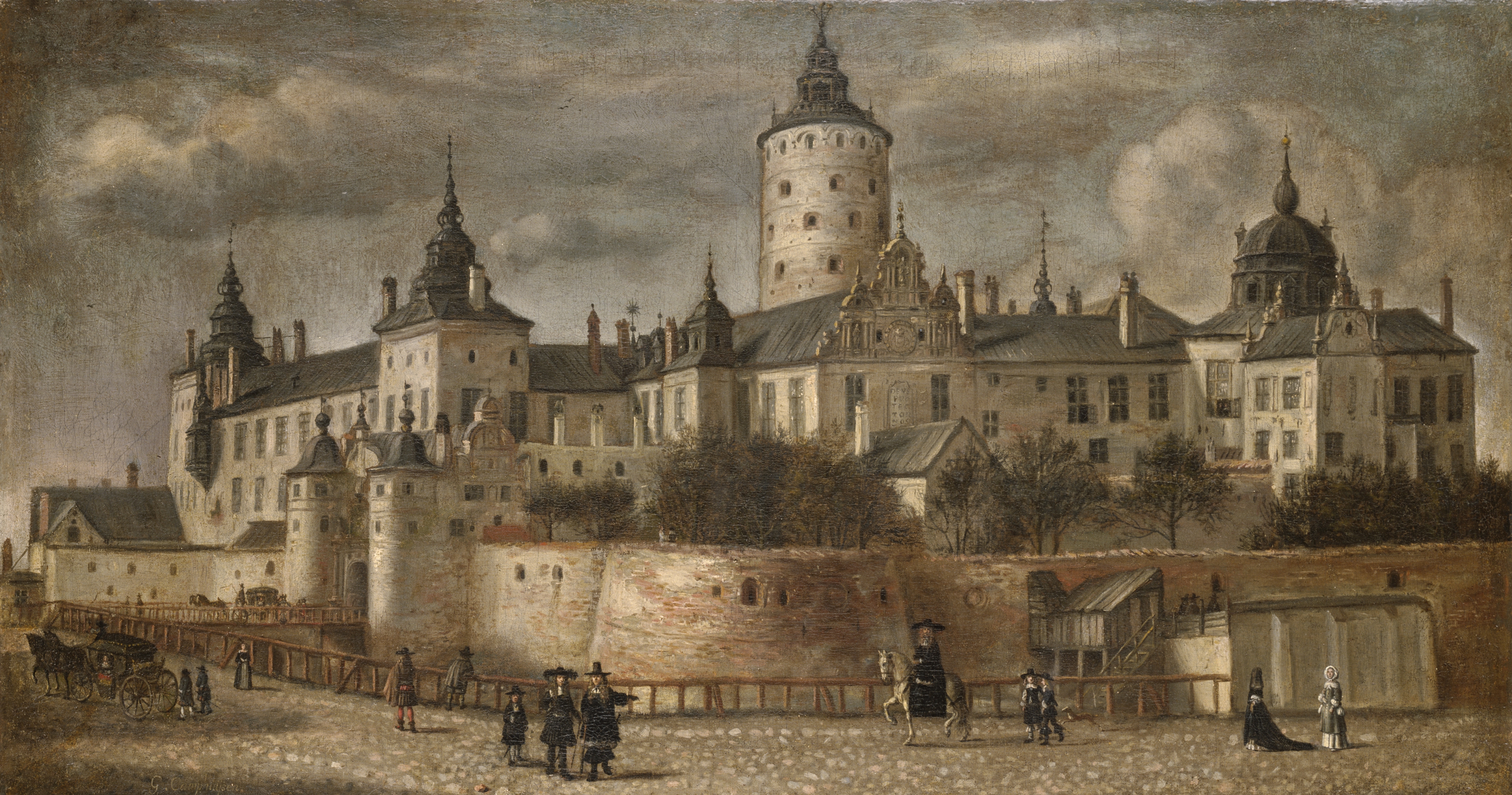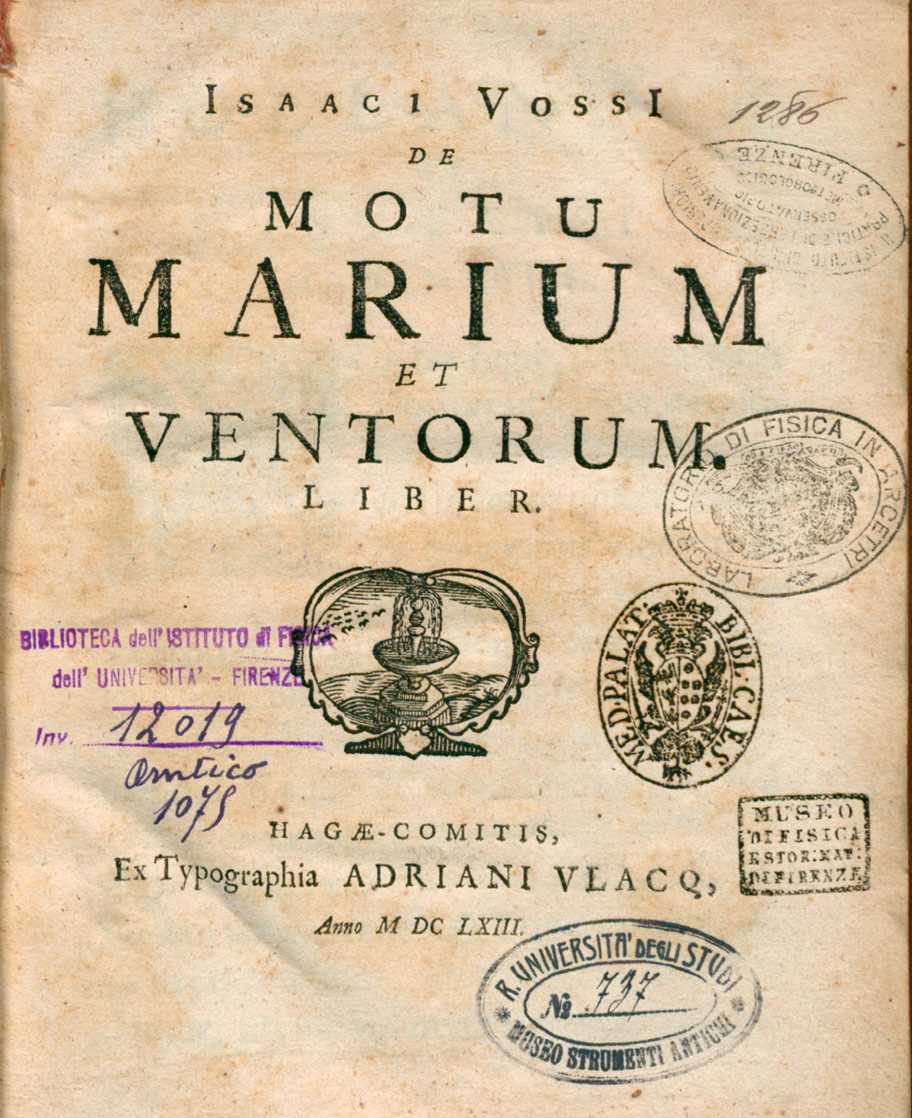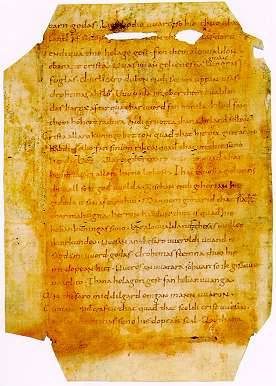|
Franciscus Junius The Younger
Franciscus Junius (29 January 1591 – 1677), also known as François du Jon, was a pioneer of Germanic philology. As a collector of ancient manuscripts, he published the first modern editions of a number of important texts. In addition, he wrote the first comprehensive overview of ancient writings on the visual arts, which became a cornerstone of classical art theories throughout Europe. Life Junius was born in Heidelberg. He was brought up at Leiden, Netherlands as his father, also called Franciscus Junius, was appointed professor of Hebrew at Leiden University in 1592. In 1602 his parents died, and Junius went to live with his future brother-in-law, the humanist scholar Gerhard Johann Vossius in Dordrecht. His attention was diverted from military to theological studies by the peace of 1609 between Spain and the Netherlands, and he studied theology at Leiden and Middelburg. In 1617, he became a pastor at Hillegersberg, near Rotterdam. He resigned this position the following ... [...More Info...] [...Related Items...] OR: [Wikipedia] [Google] [Baidu] |
François Junius, After Anthony Van Dijck
François () is a French language, French masculine given name and surname, equivalent to the English name Francis (given name), Francis. People with the given name * Francis I of France, King of France (), known as "the Father and Restorer of Letters" * Francis II of France, King of France and King consort of Scots (), known as the husband of Mary Stuart, Queen of Scots * François Amoudruz (1926–2020), French resistance fighter * Voltaire, François-Marie Arouet (better known as Voltaire; 1694–1778), French Enlightenment writer, historian, and philosopher *François Aubry (other), several people *François Baby (other), several people * François Beauchemin (born 1980), Canadian ice hockey player for the Anaheim Duck *François Blanc (1806–1877), French entrepreneur and operator of casinos *François Boucher (other), several people *François Caron (other), several people * François Cevert (1944–1973), French racing driver * Françoi ... [...More Info...] [...Related Items...] OR: [Wikipedia] [Google] [Baidu] |
Thomas Howard, 21st Earl Of Arundel
Thomas Howard, 14th Earl of Arundel KG, (7 July 1585 – 4 October 1646) was a prominent English courtier during the reigns of King James I and King Charles I, but he made his name as a Grand Tourist and art collector rather than as a politician. When he died he possessed 700 paintings, along with large collections of sculptures, books, prints, drawings, and antique jewellery. Most of his collection of marble carvings, known as the Arundel marbles, was eventually left to the University of Oxford. He is sometimes referred to as the 21st Earl of Arundel, ignoring the supposed second creation of 1289, or the 2nd Earl of Arundel, the latter numbering depending on whether one views the earldom obtained by his father as a new creation or not. He was also 2nd or 4th Earl of Surrey; and was later created 1st Earl of Norfolk (5th creation). He is also known as "the Collector Earl". Early life and restoration to titles Arundel was born in relative penury, at Finchingfield in Essex on ... [...More Info...] [...Related Items...] OR: [Wikipedia] [Google] [Baidu] |
Christina Of Sweden
Christina ( sv, Kristina, 18 December ( New Style) 1626 – 19 April 1689), a member of the House of Vasa, was Queen of Sweden in her own right from 1632 until her abdication in 1654. She succeeded her father Gustavus Adolphus upon his death at the Battle of Lützen in 1632, but began ruling the Swedish Empire when she reached the age of eighteen in 1644. The Swedish queen is remembered as one of the most learned women of the 17th century. She was fond of books, manuscripts, paintings, and sculptures. With her interest in religion, philosophy, mathematics, and alchemy, she attracted many scientists to Stockholm, wanting the city to become the " Athens of the North". The Peace of Westphalia allowed her to establish an academy or university when and wherever she wanted. In 1644, she began issuing copper in lumps as large as fifteen kilograms to serve as currency. Christina's financial extravagance brought the state to the verge of bankruptcy, and the financial difficulties c ... [...More Info...] [...Related Items...] OR: [Wikipedia] [Google] [Baidu] |
Isaac Vossius
Isaak Vossius, sometimes anglicised Isaac Voss (1618 in Leiden – 21 February 1689 in Windsor, Berkshire) was a Dutch scholar and manuscript collector. Life He was the son of the humanist Gerhard Johann Vossius. Isaak formed what was accounted the best private library in the world (Massil 2003). He had a contemporary reputation for eccentricity, refusing the sacrament on his deathbed, it was reported, until reminded that to do so would reflect unfavorably on the canons of St George's Chapel, Windsor Castle, to which chapter he belonged. He was raised in the atmosphere of a scholarly household, familiar with Greek, ancient geography, and Arabic from an early age. In 1641, he undertook a European tour, in which he visited England, France and Italy (notably Florence), making the acquaintance of scholars of the elder generation such as James Ussher and Hugo Grotius and beginning his lifelong collecting of manuscripts and books before he returned to Amsterdam in 1644 to take ... [...More Info...] [...Related Items...] OR: [Wikipedia] [Google] [Baidu] |
Codex Argenteus
The Codex Argenteus (Latin for "Silver Book/Codex") is a 6th-century illuminated manuscript, originally containing part of the 4th-century translation of the Christian Bible into the Gothic language. Traditionally ascribed to the Arian bishop Wulfila, it is now established that the Gothic translation was performed by several scholars, possibly under Wulfila's supervision. Of the original 336 folios, 188—including the Speyer fragment discovered in 1970—have been preserved, containing the translation of the greater part of the four canonical gospels. A part of it is on permanent display at the Carolina Rediviva building in Uppsala, Sweden, under the name "Silverbibeln" (i.e. "The Silver Bible"). History Origin The ''Codex Argenteus'' (literally: "Silver Book") was probably written for the Ostrogothic king Theodoric the Great, either at his royal seat in Ravenna, or in the Po valley or at Brescia; it was made as a special and impressive book written with gold and ... [...More Info...] [...Related Items...] OR: [Wikipedia] [Google] [Baidu] |
Heliand
The ''Heliand'' () is an epic poem in Old Saxon, written in the first half of the 9th century. The title means ''saviour'' in Old Saxon (cf. German and Dutch ''Heiland'' meaning "saviour"), and the poem is a Biblical paraphrase that recounts the life of Jesus in the alliterative verse style of a Germanic epic. ''Heliand'' is the largest known work of written Old Saxon. The poem must have been relatively popular and widespread because it exists in two manuscript versions and four fragmentary versions. It takes up about 6,000 lines. A '' praefatio'' exists, which could have been commissioned by either Louis the Pious (king from 814 to 840) or Louis the German (806–876). This ''praefatio'' was first printed by Matthias Flacius in 1562, and while it has no authority in the manuscripts it is generally deemed to be authentic. The first mention of the poem itself in modern times occurred when Franciscus Junius (the younger) transcribed a fragment in 1587.Kees Dekker, 'Francis Junius ... [...More Info...] [...Related Items...] OR: [Wikipedia] [Google] [Baidu] |
Paradise Lost
''Paradise Lost'' is an epic poem in blank verse by the 17th-century English poet John Milton (1608–1674). The first version, published in 1667, consists of ten books with over ten thousand lines of verse (poetry), verse. A second edition followed in 1674, arranged into twelve books (in the manner of Virgil's ''Aeneid'') with minor revisions throughout. It is considered to be Milton's masterpiece, and it helped solidify his reputation as one of the greatest English poets of all time. The poem concerns the The Bible, biblical story of the Fall of Man: the temptation of Adam and Eve by the fallen angel Satan and their expulsion from the Garden of Eden. Composition In his introduction to the Penguin Books, Penguin edition of ''Paradise Lost'', the Milton scholar John Leonard notes, "John Milton was nearly sixty when he published ''Paradise Lost'' in 1667. The biographer John Aubrey (1626–1697) tells us that the poem was begun in about 1658 and finished in about 1663. However, ... [...More Info...] [...Related Items...] OR: [Wikipedia] [Google] [Baidu] |
John Milton
John Milton (9 December 1608 – 8 November 1674) was an English poet and intellectual. His 1667 epic poem '' Paradise Lost'', written in blank verse and including over ten chapters, was written in a time of immense religious flux and political upheaval. It addressed the fall of man, including the temptation of Adam and Eve by the fallen angel Satan and God's expulsion of them from the Garden of Eden. ''Paradise Lost'' is widely considered one of the greatest works of literature ever written, and it elevated Milton's widely-held reputation as one of history's greatest poets. He also served as a civil servant for the Commonwealth of England under its Council of State and later under Oliver Cromwell. Writing in English, Latin, and Italian, Milton achieved global fame and recognition during his lifetime; his celebrated ''Areopagitica'' (1644), written in condemnation of pre-publication censorship, is among history's most influential and impassioned defences of freedom of spe ... [...More Info...] [...Related Items...] OR: [Wikipedia] [Google] [Baidu] |
MS Junius 11
The Junius manuscript is one of the four major codices of Old English literature. Written in the 10th century, it contains poetry dealing with Biblical subjects in Old English, the vernacular language of Anglo-Saxon England. Modern editors have determined that the manuscript is made of four poems, to which they have given the titles ''Genesis'', ''Exodus'', ''Daniel'', and ''Christ and Satan''. The identity of their author is unknown. For a long time, scholars believed them to be the work of Cædmon, accordingly calling the book the Cædmon manuscript. This theory has been discarded due to the significant differences between the poems. The manuscript owes its current designation to the Anglo-Dutch scholar Franciscus Junius, who was the first to edit its contents and who bequeathed it to Oxford University. It is kept in the Bodleian Library under shelfmark MS Junius 11. Name and date The codex now referred to as the "Junius manuscript" was formerly called the "Cædmon manuscri ... [...More Info...] [...Related Items...] OR: [Wikipedia] [Google] [Baidu] |
Stephen Skinner (lexicographer)
Stephen Skinner (1623–1667) was an English Lincoln physician, lexicographer and etymologist. Life He was the son of John Skinner of London. He matriculated at Christ Church, Oxford, on 6 December 1639; but when the First English Civil War broke out, he left England. In 1646 Skinner was again at Oxford, and in consideration of his foreign service he was allowed to accumulate both his arts degrees in that same year, graduating B.A. on 21 October and M.A. on 10 November. On 22 April 1649 he entered as a medical student at Leiden University, on 6 May 1653 at the University of Heidelberg, and on 4 November 1653 was again at Leyden. At the beginning of 1654 he graduated M.D. at Heidelberg, and on 26 May of that year was incorporated in the same degree at Oxford. Skinner was made honorary fellow of the London College of Physicians in December 1664. He practised in Lincoln where he died of malignant fever on 5 September 1667. Administration of his estate was granted to his sister, Eliz ... [...More Info...] [...Related Items...] OR: [Wikipedia] [Google] [Baidu] |
Edward Lye
Edward Lye (1694–1767) was an 18th-century scholar of Old English and Germanic philology. His ''Dictionarium Saxonico et Gothico-Latinum'', published posthumously in 1772, was a milestone in the development of Old English lexicography, surpassed only by, and substantially contributing to Joseph Bosworth's ''Dictionary of the Anglo-Saxon language'' of 1838. Life He was born at Totnes, Devon, the son of Thomas Lye, vicar of Broadhempston and a schoolmaster at Totnes, by his wife Catherine (née Johnson). He was educated at his father's school and at Crewkerne school, Somerset. He went to Hart Hall, Oxford, where he entered 28 March 1713, and graduated B.A. 19 October 1716, M.A. 6 July 1722. He was ordained in 1717, and in 1721 was admitted vicar of Houghton Parva, Northamptonshire. On 4 January 1750, he was elected Fellow of the Society of Antiquaries. He resigned Houghton Parva about 1750, on being presented by James Compton, 5th Earl of Northampton to the rectory of Yardl ... [...More Info...] [...Related Items...] OR: [Wikipedia] [Google] [Baidu] |
A Dictionary Of The English Language
''A Dictionary of the English Language'', sometimes published as ''Johnson's Dictionary'', was published on 15 April 1755 and written by Samuel Johnson. It is among the most influential dictionaries in the history of the English language. There was dissatisfaction with the dictionaries of the period, so in June 1746 a group of London booksellers contracted Johnson to write a dictionary for the sum of 1,500 guineas (£1,575), equivalent to about £ in . Johnson took seven years to complete the work, although he had claimed he could finish it in three. He did so single-handedly, with only clerical assistance to copy the illustrative quotations that he had marked in books. Johnson produced several revised editions during his life. Until the completion of the ''Oxford English Dictionary'' 173 years later, Johnson's was viewed as the pre-eminent English dictionary. According to Walter Jackson Bate, the Dictionary "easily ranks as one of the greatest single achievements of s ... [...More Info...] [...Related Items...] OR: [Wikipedia] [Google] [Baidu] |








